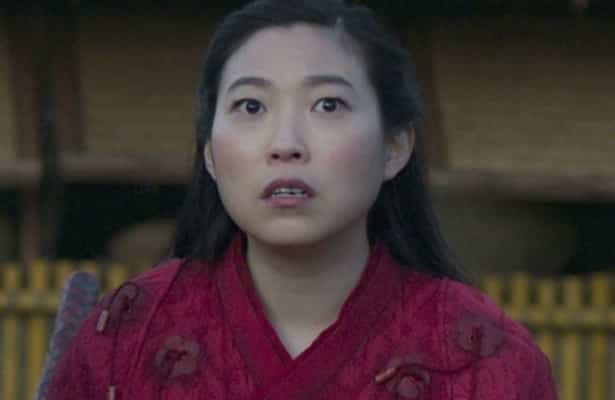One actively working actress that’s been continuing to acquire some pretty impressive roles is Awkwafina, who has been in projects such as Jumanji: The Next Level, Raya and the Last Dragon, and Shang-Chi and the Legend of the Ten Rings. With her career moving forward, however, so has the amount of backlash directed towards her. In particular, many individuals have complained about her use of African American Vernacular English, otherwise known as AAVE. Now she’s taken the time to release a statement following these accusations of cultural appropriation.
Her statement, which was released via Twitter, is quite lengthy and goes into detail regarding her use of AAVE and her own immigrant background. While this might be a satisfying response for some, others believe that she’s avoiding the true topic at hand. Specifically, they wish she would apologize directly. As for her statement, however, it’s clear that she does have passion for what she’s trying to say and that she doesn’t want to intentionally offend anyone.
For example, she began by writing:
“There is a sociopolitical context to everything, especially the historical context of the African American community in this country.
It is a group that is disproportionately affected by institutionalized policies and law enforcement policies – all the while having historically and routinely seen their culture stolen, exploited and appropriated by the *dominant* culture for monetary gain without acknowledgement nor respect for where those roots come from, the pioneers of its beginnings and the artists that perfected and mastered the craft.”
Awkwafina then continued by saying:
“It is a problem we still see today – though some may pass it off as a convoluted mixture of the “internet TikTok slang generation” that liberally uses AAVE, to add that hip hop – a genre of music that is ubiquitous and beloved across the country – has now anchored itself as a mainstream genre in music history. And in life, linguistic acculturation, immigrant acculturation, and the inevitable passage of globalized internet slang all play a factor in the fine line between offense and pop culture.”
Furthermore, the MCU contributor wrote:
“But as a non-black POC, I stand by the fact that I will always listen and work tirelessly to understand the history and context of AAVE, what is deemed appropriate or backwards toward the progress of ANY and EVERY marginalized group. But I must emphasize: To mock, belittle, or to be unkind in any way possible at the expense of others is: Simply. Not. My. Nature. It never has, and it never was.”
Finally, she finished:
“My immigrant background allowed me to carve an American identity off the movies and TV shows I watched, the children I went to public school with, and my undying love and respect for hip hop. I think as a group, Asian Americans are still trying to figure out what that journey means for them – what is correct and where they don’t belong. And though I’m still learning and doing that personal work, I know for sure that I want to spend the rest of my career doing nothing but uplifting our communities. We do this first by failing, learning, acknowledging, hearing and empathizing… And I will continue, tirelessly, to do just that.”
The actual statement clearly goes deep into her thoughts and feelings, which may or may not still be what those offended want to hear. But at least she took the time to offer some kind of response on the matter, as some celebrities tend to ignore backlash altogether. It’s nice to see that Awkwafina still wants to clarify things for her fans that might be upset with her.
In any case, as of this writing, Awkwafina has stated that she’ll be taking a break from social media as recommended by her therapist.

